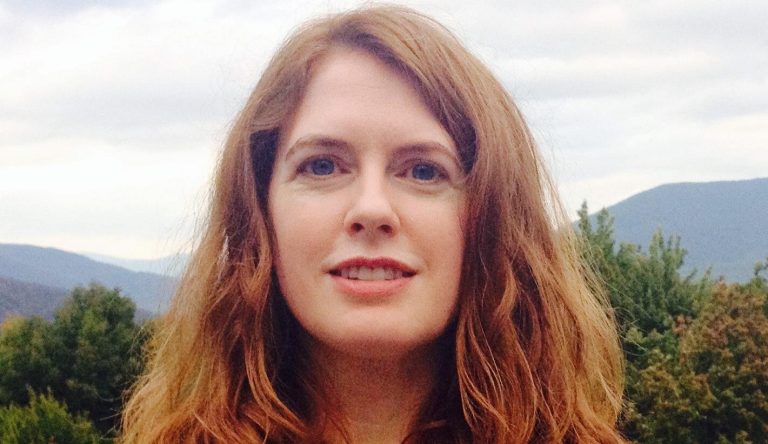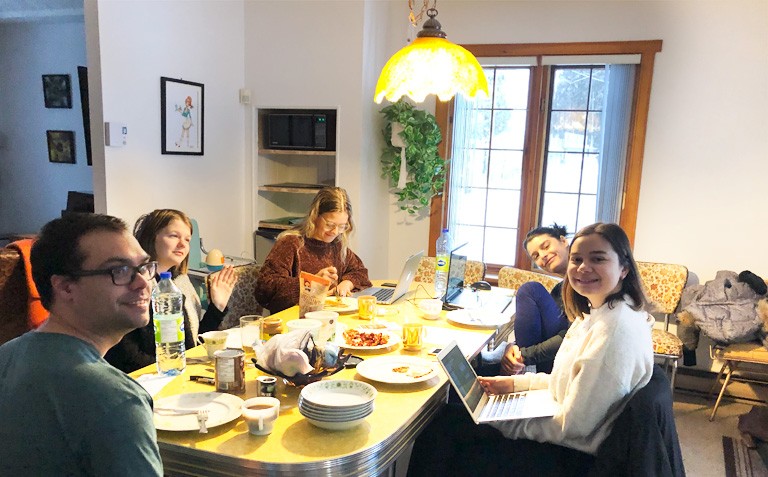Concordia’s Institute for Investigative Journalism earns national recognition for the Tainted H20 project

A project coordinated by Concordia’s Institute for Investigative Journalism (IIJ) has won the Radio Television Digital News Association (RTDNA) Dan McArthur Award for investigative journalism.
This award comes after the project received seven nominations for its investigative work on the Tainted H2O project. The nationwide collaborative investigation exposed the reality of lead levels in Canada’s drinking water.
The project has thus far received nominations from RTDNA, the Canadian Journalism Foundation, the Canadian Association of Journalists (CAJ) and the Emerge Media Awards.
The RTDNA nominated the IIJ for three awards. The three nominations are shared with Global News in Montreal, Calgary and Regina under the category of “Multiplatform – Investigative.” Regina Global picked up the prize.
Aphrodite Salas (MA 99), assistant professor of journalism, also won an RTDNA award in the category of Digital Media Award (Large Market) for her electronic journalism project, “From Shore to Sky: A Reconciliation Story,”.
Salas' project, which was produced in collaboration with CTV Montreal, is an RTDNA Central Region finalist in the category “Digital Media Award (Large Market).
The IIJ project saw the student journalists who collaborated on the investigation with the institute from the University of Regina win first place from the Emerge Media Awards with their documentary “Drained: An Investigation Into Drinking Water, Health and Money” in the video documentary category.
The investigation also earned a nomination from the Canadian Journalism Foundation for the CJF Jackman Award for Excellence in Journalism.
In addition, the investigation that appeared in The Toronto Star, Global News, Le Devoir, Regina-Leader-Post and National Observer has received a nomination from the CAJ for the Data Journalism Award.
“We are all honoured by the nominations,” says Patti Sonntag, director of the IIJ, which manages a partnership between media organizations and university journalism departments across Canada and is headquartered in Concordia’s Department of Journalism.
“I’m really proud of my students and everything we were able to contribute. Everyone really pitched in and gave so much of their time and effort to this community service project.”
‘A new, fiery generation of investigative reporters’
Tainted H2O was a year-long investigation conducted by more than 120 journalists from nine universities and six media groups. The investigation was coordinated by the IIJ.
For the investigation, thousands of undisclosed results and tested water from hundreds of homes in 11 different cities were reviewed, and the report concluded that lead levels were above national safety directives.
According to the report, one-third of tests exceed the federal guidelines of five parts of lead per billion, with some of the highest levels recorded in Montreal, Gatineau, Regina and Saskatoon.
The reporting reflected that Canada agencies that conduct tests have no obligation to inform residents — provinces set their own rules regarding water testing and lead pipe replacement.
“Canada needs to support the work of investigative reporters, who uncover hidden information,” Sonntag (BA 00) says.
The former managing editor of the News Services division for The New York Times adds that she is excited to continue with more projects with the institute.
“There is such a need for local news reporters in Canada. This is why I proposed the IIJ to Concordia — these types of reporting are so important.”

A first of its kind in Canada
The institute, which Concordia launched in 2018, offers journalism students unparalleled educational experiences to engage in in-depth coverage of complex stories and investigations in underserved communities.
A first of its kind in the country, the IIJ also connects journalism students with major media outlets across Canada to carry out these investigations in the public interest.
Sonntag returned to Concordia in 2016 when she was selected as the journalist-in-residence. For her first project in this role, she led a small cohort of third- and fourth-year Concordia journalism students in an investigative data journalism project into whether the provincial forestry ministry observes the guidelines it sets.
Their investigation took them 670 kilometres away from Montreal to Baie-Comeau, Quebec, where they conducted face-to-face interviews for an investigative report on budworms.
As a result, “Attack of the Budworms,” a 7,000-plus word article, was published in The Walrus magazine.
Sonntag won the Michener-Deacon Fellowship for Journalism Education after that project, which allowed her to take the initiative further.
‘Hands-on experience you can’t get anywhere else’
After the success of her first project as a journalist-in-residence, she launched the next investigation, “The Price of Oil,” which also garnered national attention.
The project tackled questions about lack of government oversight of the oil and gas industry in Saskatchewan and Ontario, as the teams uncovered evidence that local residents were being exposed to elevated levels of toxic gases.
In a nationwide investigation, Sonntag coordinated the work of 50 journalists and editors from three Canadian media outlets and four journalism schools as part of her Michener-Deacon fellowship at Concordia.
The reports appeared in the Toronto Star, Global News and the National Observer. The project also received an honourable mention from the 2018 Canadian Hillman Prize and eight other awards including the International Editors and Reporters Award.
More recently, Tainted H2O has received widespread media coverage, with many outlets across the country taking part in the reporting.
David Secko, professor and chair of journalism, says he is very happy with all the work that has come from the institute.
“The IIJ continues to push and be rewarded for its collaborative approach to teaching investigative journalism. Kudos to the media organizations and reporters too,” he says.
Sonntag emphasizes the need to support local reporters in Canada and large-scale projects like these ones.
“There is nothing quite like this,” Sonntag says. “These projects provide a hands-on experience you can’t get anywhere else. It’s a great learning experience.”
She looks back at the last few years of work with pride. “Journalism is changing and we have a front seat to it all.”
Learn more about Concordia’s Institute for Investigative Journalism.


